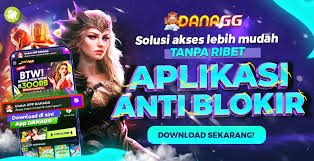In the ever-evolving landscape of artificial intelligence, two prominent players have emerged on opposite sides of a critical battleground: text detection and identification. On one side, we have Google, the global giant in search engine technology, responsible for guiding users to accurate and reliable information. On the other side, we find Can Google Detect Chatgpt Generated Content, an AI language model developed by OpenAI, celebrated for its ability to generate coherent and contextually relevant text. This article explores the ongoing battle between Google and ChatGPT, delving into their respective roles and strategies in the quest for text detection and identification.
Google: The Gatekeeper of the Web
Google has earned its reputation as the world’s leading search engine, serving as the primary entry point for millions of users seeking information. Google’s sophisticated algorithms are designed to provide users with accurate, relevant, and trustworthy content. This mission places the company at the forefront of the fight against misinformation and AI-generated content.
ChatGPT: The Rising Star in AI Text Generation
OpenAI’s ChatGPT, on the other hand, represents a cutting-edge development in artificial intelligence. This advanced language model has the capacity to produce text that closely resembles content written by humans. ChatGPT has found applications in content creation, customer support, and various other domains, revolutionizing the way we interact with AI-generated text.
The Battle of Text Detection
Text detection is the first line of defense in identifying AI-generated content. Google’s algorithms are designed to detect unnatural language, logical inconsistencies, and other telltale signs of machine-generated text. However, with models like Can Google Detect Chatgpt Generated Content continually improving their text generation capabilities, Google faces an ongoing challenge in staying ahead in this battle.
ChatGPT’s Evolving Abilities
ChatGPT’s continuous evolution in generating text that mimics human writing has created a cat-and-mouse game with Google’s detection algorithms. As AI models enhance their linguistic prowess, Google must adapt its techniques to maintain the quality and trustworthiness of its search results.
Google’s Strategies
Google employs several strategies to address the issue of AI-generated content:
- Algorithmic Improvements: Google continually fine-tunes its search algorithms to enhance its ability to detect and differentiate AI-generated content, aiming to minimize its impact on search results.
- User Feedback: Google actively solicits feedback from users regarding the quality and authenticity of search results, especially concerning AI-generated content. User feedback is invaluable in understanding the extent of the problem and adjusting algorithms accordingly.
- Content Guidelines: Google provides guidelines for webmasters and content creators. Emphasizing best practices and discouraging the use of AI-generated content to manipulate search rankings.
- Collaboration with AI Developers:. Google collaborates with AI developers like OpenAI to stay informed about the latest advancements in AI technology. Allowing it to remain at the forefront of AI content detection.
The Ongoing Battle
The battle between Google and ChatGPT is a testament to the rapid advancements in AI technology. While ChatGPT continues to evolve and enhance its text generation capabilities. Google remains committed to refining its detection algorithms and maintaining the integrity of its search results.
Conclusion
The showdown between Google and Can Google Detect Chatgpt Generated Content in the arena of text detection. And identification is a reflection of the dynamic nature of AI and its impact on online content. As the capabilities of models like ChatGPT continue to progress, the ability to differentiate between human. And AI-generated content becomes increasingly crucial for preserving the quality and trustworthiness of online information. Google’s dedication to this ongoing battle, marked by algorithmic improvements and collaboration with AI developers. Exemplifies its commitment to maintaining its role as the gatekeeper of the web. The future of this conflict is sure to bring further innovation and challenges as both sides continue to adapt and evolve.





